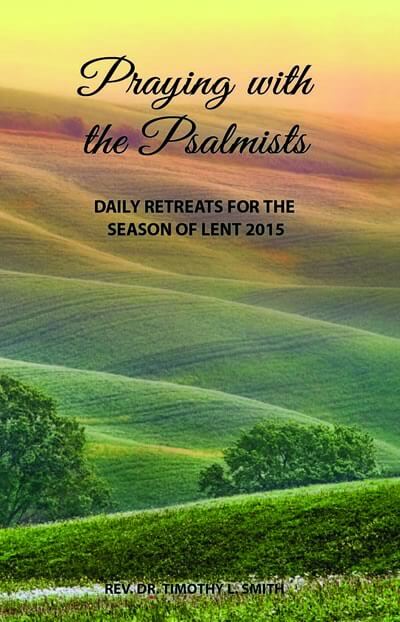 Already There, Waiting
Already There, Waiting
Where can I go from your Spirit?
Where can I flee from your presence?
If I go up to the heavens, you are there;
if I make my bed in the depths, you are there.
If I rise on the wings of the dawn,
if I settle on the far side of the sea,
even there your hand will guide me,
your right hand will hold me fast.
Psalm 139:7-10
In making my rounds as a hospital chaplain, anxious patients would sometimes request that I read today’s psalm to them. Right along with Psalm 23, the Shepherd Psalm, people in pain and uncertainty have come to know and long for the encouragement of Psalm 139. In this psalm David revels in the wonder of God knowing everything about us (vv. 1-6), being with us everywhere (vv. 7-12), and possessing all power (vv. 13-18).
Today’s psalm text is taken from that section of the psalm delighting in God being with us wherever we are: a hospital bed, prison cell, doubter’s quandary, or darkest night of the soul. The ancient Hebrew people knew and worshipped God as Yahweh Shamah, “The LORD is There” (see Ezekiel 48:35). In the exodus out of Egypt God promised Moses: “My Presence will go with you” (Exodus 33:14). In response to God’s promised presence, Moses replied: “If Your Presence does not go with us, do not send us up from here” (Exodus 33:15). God later promised Joshua that His presence would go with him as he led the people to the Promised Land: “As I was with Moses, so I will be with you; I will never leave you nor forsake you. Be strong and courageous” (Joshua 1:5-6).
Often when I do not know how to pray for a person I will pray that they know God’s presence with them. To know that God is present with us changes everything. One of the keys to understanding David’s boldness is to know his confidence in God’s presence whether fighting Goliath, fleeing Saul, or repenting of sin.
In today’s psalm text David asks a rhetorical question: “Where can I flee from your presence?” Then he answers it. Poet that he is, David employs a figure of speech known as a merism, in which extreme opposites are used to include everything in between them. For instance, if I say, “People came from far and wide,” I mean that people came from everywhere. Or, if I say, “People young and old were there,” I mean that all different ages are there. The two extremes encompass the totality.
David uses the opposite extremes of the heights of the “heavens” and the “depths” of the earth. He uses the opposite extremes of the east and the west to encompass God’s presence everywhere between them. He imagines ascending to the “heavens” and finding God with him, and sinking beneath the depths of the sea, and even there, God is with him. Being an early morning person, David sees “the wings of the dawn”, or, those first rays of sunlight rising up in the east. Then taking the speed of sunlight as his chariot David mentally travels to “the far side of the sea”, or as far west into the Mediterranean as he could fly. As far up or down as we can go, or as far east or far west as we can go, we will find God waiting for us.
David comes to the conclusion of the matter, the significance of God always being with us: “your hand will guide me, your right hand will hold me fast.” It isn’t just that God is there, but that God is there for us. Knowing that God was always with him made the critical difference in David’s life. Even as God promised to be with Moses, with Joshua, and with David, so He promises to always be with us. “And surely I am with you always”! (Matthew 28:20).
READ REFLECT RESPOND REST
RECORD (optional)


 Already There, Waiting
Already There, Waiting
